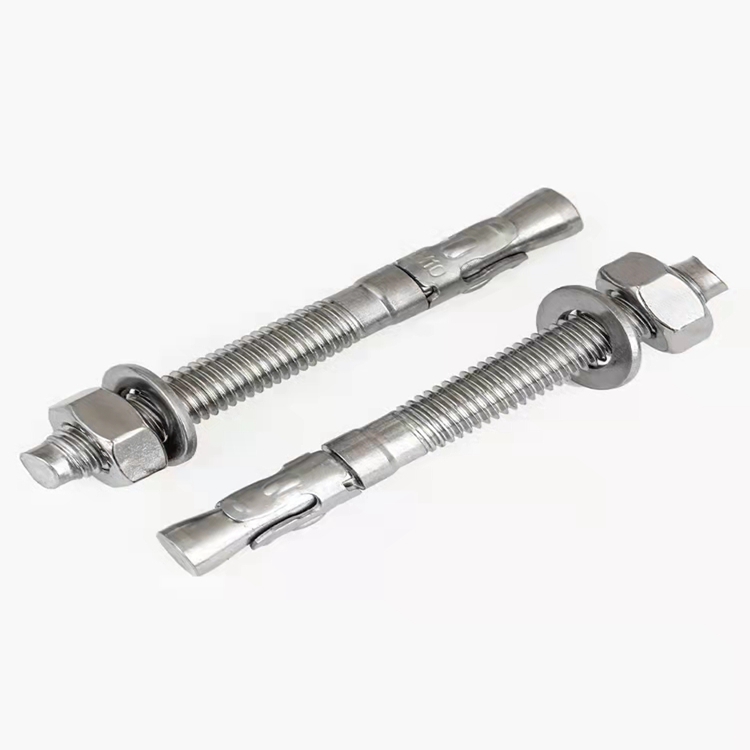stainless bolts in aluminum exporter
Dec . 05, 2024 15:28 Back to list
stainless bolts in aluminum exporter
The Role of Stainless Steel Bolts in Aluminum Applications An Overview for Exporters
In the world of manufacturing and construction, the use of stainless steel bolts in aluminum applications has become increasingly important. This combination offers significant advantages, especially in terms of durability, corrosion resistance, and overall structural integrity. For exporters dealing in such materials, understanding these aspects is crucial for meeting the demands of the global market.
Understanding the Materials
Stainless steel is an alloy known for its excellent corrosion resistance, strength, and longevity. On the other hand, aluminum is a lightweight metal that is favored for its malleability, making it a popular choice in various industries, including aerospace, automotive, and construction. When these two materials are used together, they create a dynamic synergy that enhances the performance of products.
However, one might ask why use stainless steel bolts specifically with aluminum? The answer lies in the unique properties of both materials. Aluminum is susceptible to oxidation, which can weaken its structural integrity over time, especially in harsh environments. Conversely, stainless steel bolts provide a robust solution that mitigates these risks.
Corrosion Resistance and Benefits
One of the most critical benefits of using stainless steel bolts in aluminum applications is enhanced corrosion resistance. The presence of chromium in stainless steel forms a passive layer on the surface, which protects against rust and degradation. This is particularly important in environments exposed to moisture, chemicals, and extreme weather conditions.
Additionally, stainless steel bolts have a lower coefficient of thermal expansion compared to aluminum. This means that as temperatures fluctuate, the two materials expand and contract at different rates, which can lead to mechanical failure or loosening of fasteners. By selecting the right grade of stainless steel for bolts, exporters can minimize these discrepancies, ensuring a secure fit.
stainless bolts in aluminum exporter

The Export Market Dynamics
The demand for stainless steel bolts used in aluminum applications has been rising globally. Industries such as construction, automotive manufacturing, and even renewable energy sectors are seeking reliable and durable fastening solutions. For exporters, this presents an opportunity to supply high-quality stainless steel bolts that meet specific standards and certifications required by various industries.
One of the challenges faced by exporters is navigating the regulatory landscape, as different countries have varying import and export standards. Understanding these regulations is essential for ensuring compliance and successful market entry. Building strong relationships with local distributors and manufacturers can facilitate smoother transactions and enhance market presence.
Quality Assurance
Quality assurance is another critical aspect for exporters of stainless steel bolts. Ensuring that products meet international standards is essential for gaining trust and credibility in the market. This involves rigorous testing for tensile strength, corrosion resistance, and overall performance. Certifications, such as ISO 9001, can enhance an exporter’s reputation, making their products more appealing to potential buyers.
Moreover, providing comprehensive technical support and documentation can further differentiate exporters in a competitive landscape. Customers often seek not only products but also solutions and expertise in selecting the appropriate fasteners for specific applications.
Conclusion
In conclusion, the combination of stainless steel bolts with aluminum applications offers numerous advantages that contribute to increased durability and longevity of products. For exporters in this niche, understanding the intricacies of material compatibility, quality assurance, and market dynamics is vital to success. As the demand for reliable fastening solutions continues to grow, those who can adapt and innovate in their offerings will thrive in the ever-evolving global marketplace. By prioritizing quality, regulatory compliance, and customer relations, exporters can carve out a significant share in this lucrative sector, ultimately driving their businesses forward into the future.
Latest news
-
High-Quality Panel Stud Bolt Reliable Panel Stud Bolt Factory & Suppliers
NewsJul.08,2025
-
High-Precision Fine Thread Locknuts Manufacturer & Supplier Custom Solutions
NewsJul.08,2025
-
PH Imperial Stud Bolt – High Strength Fasteners from Leading Supplier & Factory
NewsJul.07,2025
-
High-Quality Allen Wrench Bolts Leading Factory, Company & Suppliers
NewsJul.07,2025
-
Wholesale Ball Stud Bolt - High Quality Supplier & Factory Price Reliable Wholesale Ball Stud Bolt Company
NewsJul.06,2025
-
High-Strength Alloy Bolts Manufacturer & Supplier Quality Alloy Fasteners Factory
NewsJul.06,2025
